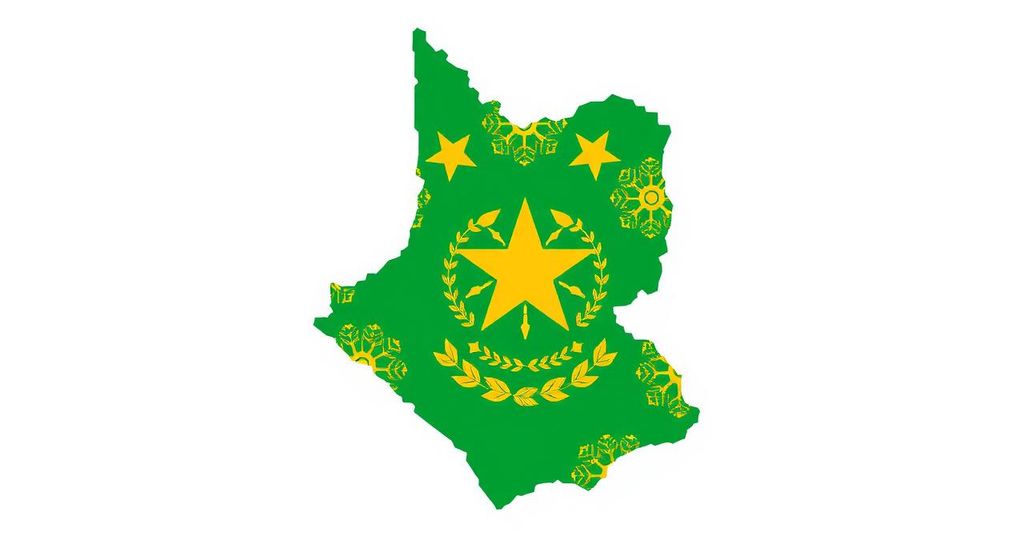Sudan and Somalia Reject U.S. Plan for Resettling Palestinians from Gaza
Sudan has rejected a U.S. request to discuss resettling Palestinians displaced from Gaza under Trump’s plan. The military-led government declined offers of military support and incentives associated with the plan, asserting the protection of Palestinian rights. Both Somalia and Somaliland also expressed disinterest in the proposal, reflecting regional solidarity with the Palestinian cause amidst ongoing humanitarian crises.
Sudan has officially rejected a request from the United States to discuss the resettlement of Palestinians displaced from Gaza under former President Donald Trump’s proposal, which aims to transform the territory into a luxury destination. Sudanese officials confirmed that the military-led government dismissed the request, noting that discussions had commenced prior to Trump’s inauguration. According to one official, these early conversations included offers of military assistance and incentives but were swiftly rebuffed, stating, “This suggestion was immediately rebuffed.”
The U.S. and Israel have reportedly reached out to Sudan, Somalia, and Somaliland regarding the resettlement of uprooted Palestinians. Despite international backlash and the significant challenges involved, it appears that both countries are intent on pursuing Trump’s vision, potentially to encourage regional players to provide alternative solutions for Gaza after the conflict ceases. Ahmed Moalim Fiqi, Somalia’s foreign minister, asserted Somalia’s rejection of any plans that would undermine the Palestinians’ rights to their ancestral land.
The proposed plan implies that Gaza’s population, exceeding two million residents, would be expelled to enable reconstruction efforts aimed at establishing a high-end leisure and business hub. International law experts have asserted that any forced displacement would be unlawful. Egypt and Jordan initially considered as resettlement sites have vehemently opposed the concept. Palestinians in Gaza have similarly denounced the notion, emphasizing the involuntary nature of such relocations.
The White House publicly supports Trump’s vision, but U.S. and Israeli officials have opted for discretion regarding the nature of negotiations with potential host countries. Israeli Prime Minister Benjamin Netanyahu characterized the proposal as a “bold vision” and continues to seek destinations for relocating Palestinians. International legal authorities warn that the proposed emigration could constitute a war crime amidst the ongoing humanitarian crises in Gaza.
Despite Sudan’s critical humanitarian situation, U.S. incentives aimed at encouraging this resettlement have included offers of military support against the Rapid Support Forces. Sudan’s de facto president, General Abdel Fattah al-Burhan, recently reiterated the country’s categorical rejection of any plans to dislocate Palestinians, stating his intent to uphold their rights.
Somaliland, a self-declared state without international recognition, also voiced that it had not been approached for discussions regarding the resettlement of Palestinians. Somalia, staunchly supportive of Palestine and involved in recent Arab summits opposing the Trump plan, similarly confirmed it has not engaged in talks about such resettlement efforts. The country has established solid relations with various Arab nations and Turkey, while much of its territory is governed by the militant group al-Shabaab.
The rejection of the U.S. request by Sudan highlights the complexities surrounding the resettlement of Palestinians affected by the ongoing Gaza conflict. Both Sudan and Somalia have reiterated their commitment to Palestinian rights, dismissing suggestions that would infringe upon these rights. Despite the U.S. administration’s continued push for Trump’s controversial proposal, the lack of support from regional actors indicates significant obstacles ahead in its implementation. Furthermore, international legal perspectives underscore the potential illegality of forced resettlements, further complicating this significant geopolitical issue.
Original Source: www.theguardian.com




Post Comment